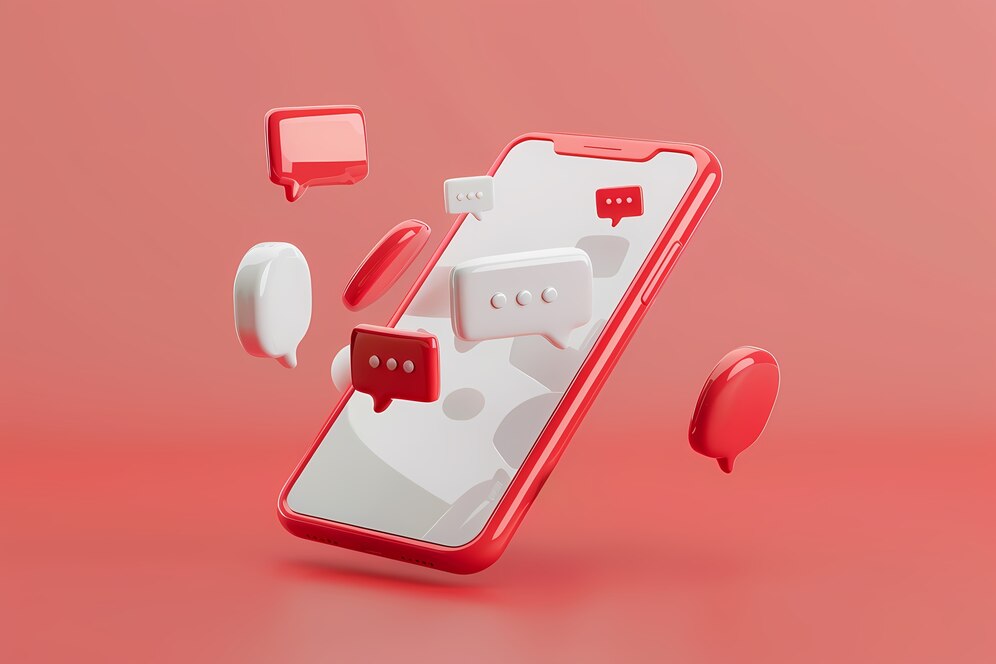Ding. Buzz. Slide. Repeat.
If your phone lights up every few minutes, you’re not alone. In fact, the average person receives over 100 notifications per day—and each one is a tiny detour for your brain. While technology keeps us connected, it’s also silently hijacking our attention. If you’ve ever struggled to finish a task, hold a conversation, or read an article without checking your phone, it might be time to rethink your relationship with notifications.
Here’s what constant pings are doing to your brain—and a few practical ways to reclaim your focus.
The Science: Why Notifications Break Your Brain
1. Attention Fragmentation
Every time you get a notification, your brain performs a task switch. It shifts attention from what you’re doing to check the alert—even if you don’t act on it. Research shows it can take up to 23 minutes to refocus after a single interruption. Multiply that by a dozen notifications and… well, you get the picture.
2. Dopamine Disruption
Notifications trigger a dopamine response—the same chemical involved in reward and pleasure. It’s why you get a little rush when your phone buzzes. Over time, this trains your brain to crave interruptions, even when they’re irrelevant or unimportant.
3. Productivity Black Hole
Those constant check-ins come at a cost. Studies have linked frequent notification interruptions to reduced productivity, higher stress levels, and even poorer memory retention. In short, your brain never gets the deep, uninterrupted time it needs to focus and think clearly.
Signs You’re in Notification Overload
-
You check your phone even when it hasn’t buzzed.
-
You can’t get through a task without switching to your messages, social media, or email.
-
You feel anxious or “on edge” when your phone is on silent or out of sight.
-
You miss important details or forget things after interruptions.
If any of these sound familiar, it’s time for a reset.
Try This: A Smarter Way to Manage Notifications
You don’t have to go full digital detox to see results. Start with these realistic, tech-friendly strategies:
1. Use “Do Not Disturb” with Intention
Most smartphones let you customize Do Not Disturb or Focus Modes. Set one up for:
-
Work hours
-
Sleep time
-
Reading, writing, or deep-focus tasks
You can whitelist certain people or apps (like calls from family or calendar alerts) and silence the rest.
2. Turn Off Non-Essential Alerts
Be ruthless. Do you really need notifications from:
-
Social media likes?
-
Retail apps?
-
Random newsletters?
Go to your notification settings and turn off anything that doesn’t require immediate action. The quiet will feel weird at first—but liberating later.
3. Batch Your Notifications
Instead of getting alerts in real time, set them to appear in bundles at certain times of the day (this feature is available on iOS and Android). That way, you stay informed—on your terms.
4. Set “Check-In” Times
Designate specific times during the day to check your messages, emails, and social media. For example:
-
Morning: 9:00 AM
-
Midday: 1:00 PM
-
Evening: 5:00 PM
Outside of those windows, keep the apps closed or silenced.
5. Wear a Real Watch
Yes, really. One of the biggest reasons we check our phones is to look at the time—and then get sucked in by notifications. A watch solves that problem without distraction.
6. Use Notification-Free Zones
Create physical spaces where screens are off-limits:
-
The dining table
-
Your bed
-
The bathroom (yep)
This creates mental boundaries that reinforce focus.
7. Mind the Vibration
Even if you silence alerts, a vibration still grabs your attention. Try total silence mode during deep work sessions. You’ll be shocked how much more you get done.
The Payoff: What Happens When You Take Back Control
Reducing notification noise won’t just improve your focus—it’ll transform how you move through your day. Most people report:
-
Improved concentration
-
Lower stress
-
More presence in real-world interactions
-
Better sleep
-
Greater productivity in less time
And perhaps most importantly, you stop feeling like a passenger in your digital life—and start driving it.
Fewer Pings, More Peace
Technology is supposed to serve us—not distract us. And while you don’t have to ditch your devices, you can absolutely change how they interact with you. Try muting the noise for a day. You might be surprised by how quiet the world is—and how loud your thoughts become.

